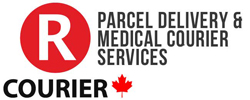
In Oncology, the timing of medication delivery is crucial for patient care. This post details the significance of timely medication delivery in oncology clinics, focusing on its impact on treatment outcomes, patient satisfaction, and healthcare costs.
Understanding the Need for Timely Medication Delivery
Cancer treatments often follow strict schedules, with precise timing required to maximize efficacy and minimize side effects. Delays in medication delivery can lead to missed doses, reduced effectiveness of treatment, and increased side effects, which can significantly affect a patient’s quality of life and chances of recovery.
Furthermore, oncology medications, including chemotherapeutics, targeted therapies, and immunotherapies, are often highly specialized and not readily available at local pharmacies. This necessitates a well-organized supply chain to ensure that these critical drugs are delivered to clinics in a timely manner – one that incorporates the leading Southwestern Ontario medical delivery service.
Impact on Treatment Outcomes
The timing of medication delivery can directly impact the effectiveness of cancer treatments. For instance, certain chemotherapy regimens require drugs to be administered in specific sequences and at exact intervals. Any delay can disrupt this balance, potentially leading to suboptimal treatment outcomes.
Moreover, the progression of cancer can be rapid and unpredictable. Timely delivery of medications, like direct delivery service, ensures that treatment can be adjusted quickly in response to changes in a patient’s condition, allowing for the best possible outcomes.
Patient Satisfaction and Trust
Prompt medication delivery also plays a significant role in patient satisfaction and trust in their healthcare providers. When patients receive their medications on time, they feel cared for and valued, which can positively impact their overall treatment experience.
Delays, on the other hand, can lead to anxiety, frustration, and a loss of trust in the healthcare system. This can affect patient adherence to treatment plans and their willingness to continue with prescribed regimens.
Reducing Healthcare Costs
Efficient medication delivery can lead to cost savings for healthcare systems. By ensuring that treatments are administered as planned, the need for additional interventions, hospital stays, and emergency care due to complications from delayed treatment can be reduced.
Additionally, timely delivery can help prevent the wastage of expensive oncology medications, which often have strict storage and handling requirements and limited shelf lives.
Challenges in Ensuring Timely Delivery
Several factors can impact the timely delivery of oncology medications, including logistical challenges, effective communication for timely deliveries, regulatory issues, and supply chain disruptions. Clinics and pharmacies must navigate these complexities while ensuring that patient care remains the top priority.
Strategies to improve medication delivery include investing in advanced inventory management systems, developing strong relationships with suppliers, and implementing robust contingency plans to address potential delays.
Conclusion
Timely medication delivery is essential for the effective treatment of cancer patients in oncology clinics. By ensuring that patients receive their medications as scheduled, clinics can improve treatment outcomes, enhance patient satisfaction, and reduce healthcare costs.





